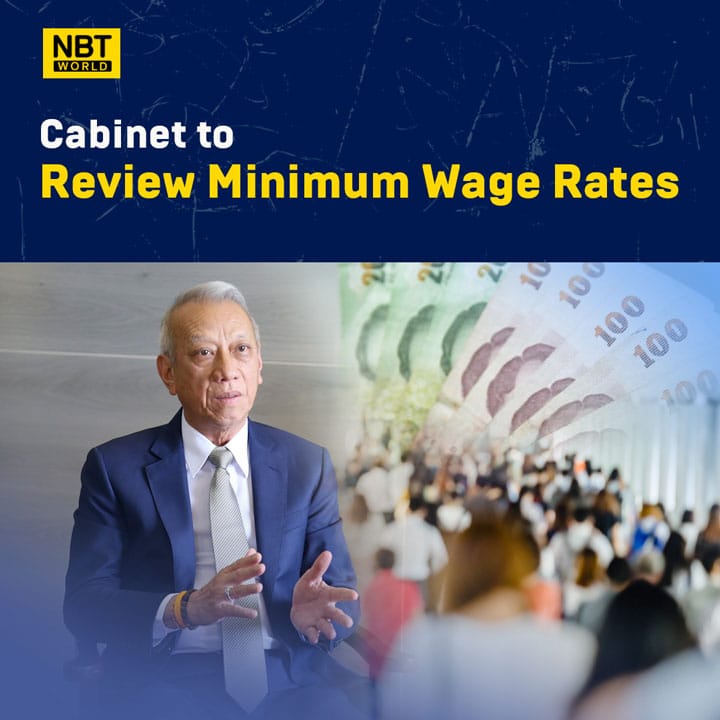Cabinet considers review of new minimum daily wage rates in Thailand

The Cabinet is expected to order a review of the new minimum wage rates, which were previously approved by a tripartite pay commission.
Labor Minister Phiphat Ratchakitprakarn has indicated that he does not have the authority to review the rates and will ask the cabinet to consider a review. However, if the committee sticks to its original decision, the government may have limited options to intervene.
The committee's decision to increase the minimum daily wage by 2 to 16 baht has been criticized by Prime Minister Srettha Thavisin. He thinks the increases are too low and plans to consult with the committee in the coming weeks. He can reject the proposed rates when they are submitted to the cabinet.
Several business organizations have called on the government to respect the commission's decision. This is to ensure fairness for both employees and employers. These groups argue that a significant increase in the minimum daily wage could have negative consequences for the economy, which is still slowly recovering.
The new minimum daily wage rates will come into effect on January 1, 2024. There are differences between provinces, ranging from 330 to 370 baht. Despite these increases, rates fall short of the promise of the Pheu Thai Party, which promised a minimum wage of 400 baht per day during the election campaign earlier this year. This has raised concerns among companies about higher operating costs and reduced competitiveness.


I believe that the minimum wage should be the same throughout Thailand; and therefore not affected by the costs of living. After all, it is compensation for work. And people who do the same work should be paid the same. Chickens slaughtered in Bangkok are also no more expensive than chickens slaughtered in Surin.
The minimum wage should be a floor for social security. 370 Baht per day means about 10.000 Baht per month. It is actually impossible to make a living, especially not with a family. It is therefore not surprising that many Thais with that income have all kinds of sources of income, from legal to illegal, from working extra themselves to living on the pockets of others.
The fact that the country is only making progress at a slow pace (and its competitiveness is not really increasing) has to do with the connection between salary/income and education/knowledge. So not only does something need to be done about the salary, but certainly also about the education level of Thais. The better educated Thais earn a reasonable salary.
That is exactly the same in Germany, each state has its own pay scales and employment contracts. In BE, not everyone has the same pay for the same work. A permanent civil servant also has different scales than a contractual civil servant. And as far as I'm concerned it may remain that way, we are not communists after all.